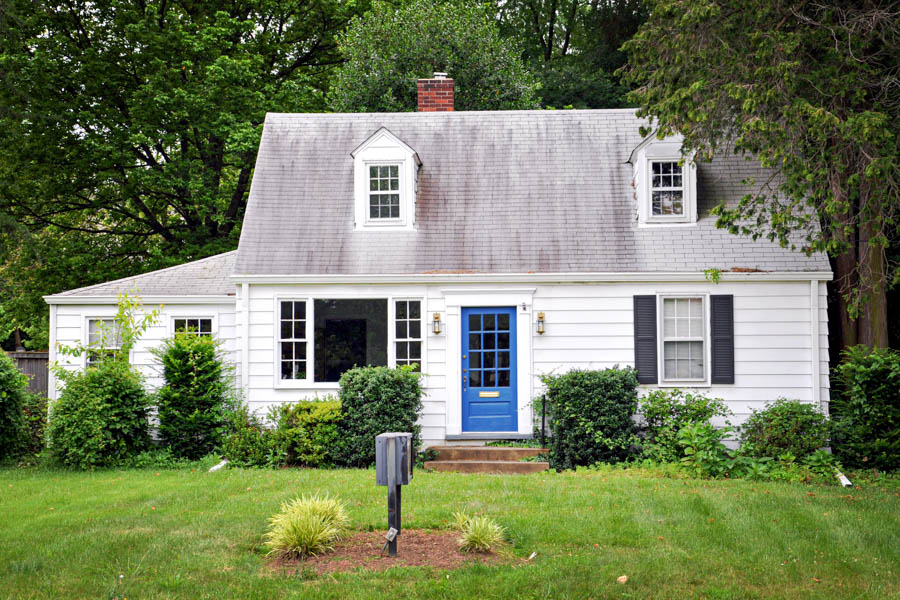And how to decide whether you should buy that house with “potential”.

When someone says a house has “good bones,” what exactly does that mean? And if you’re shopping for a home, how can you determine if the one you like fits the definition? If it doesn’t, should you buy it or walk away?
While there’s no hard-and-fast definition of this realty term, a house with good bones generally has three characteristics:
- Major components and systems in like-new or very good condition
- Cosmetic flaws are relatively simple, easy or affordable to fix
- The home’s “awesomeness potential” after cosmetic improvements are completed
The home may look ugly, and the list of cosmetic flaws may be longer than your arm, but the major components, or “bones,” are in good shape and ready for the TLC a willing and able buyer is prepared to provide.
Knowing whether a home has good bones may help you decide if it’s a diamond-in-the-rough you can buy for a smart price or a money pit you don’t want to purchase for any price at all.
How to determine if a home has “good bones”
Determining whether a home has good bones isn’t a DIY project for most buyers. Rather, it’s a job for a professional — or better still, a lot of professionals.
Top of the list should be a professional home inspector. A home inspector walks through the house with a detailed checklist and examines everything visible and reasonably accessible.
A home inspection can tell you a lot about a home’s condition, but it can’t tell you everything. That’s because some of the home’s components may be beyond the scope of the inspection, and inspectors can’t see inside walls where most of the “bones” exist.
To find a house with good bones, you’ll need to bring in additional experts alongside your home inspector, such as an electrician, plumber, roofer, general contractor or structural engineer. These other pros should be able to give you more information about the home’s condition.
Good bones: what buyers should evaluate

The checklist to determine whether a home has good bones is long indeed. Items to evaluate could include:
Major systems
Homes with good bones have updated or well-maintained mechanical systems, including plumbing, electrical, and heating, ventilation and air-conditioning (HVAC). If these systems aren’t in good shape, repairing or replacing them can be costly. Plumbing leaks can also lead to serious water damage and unhealthy molds.
Structural soundness
Cracked walls, buckled floors, discolored ceilings, water puddles, a sagging roofline and other apparent defects could be cosmetic flaws or signs of hidden problems involving the home’s foundation, structural elements or roof. These problems can be very expensive to fix. Other problems to look for include asbestos, lead-based paint and damage caused by termites or other wood-destroying pests.
Original features
Classic architectural features, such as original tile, fancy moldings and baseboards, solid wood doors and hardwood floors, don’t just add charm to a home. They may also indicate that a home was well-built and well-maintained. If these details aren’t present or are in poor condition, the home may have been inexpensively built or cheaply renovated.
Floor plan
A good floor plan makes sense. Rooms are regularly shaped and well-sized. Related rooms, like the kitchen and dining areas, are clustered together. Doors, hallways and staircases are well-placed. Windows admit plenty of natural light. A floor plan that feels awkward may be surprisingly costly to fix.
Should you buy a home with good bones?
One challenge in buying “a home with good bones” is that these properties tend to be prime targets for professional home remodelers, sometimes derisively referred to as “house flippers.” These pros typically make all-cash offers, which can be appealing to sellers.
If you find yourself in a bidding war against a professional remodeler, weigh the cost of the repairs as well as the price of the home. The price at which the remodeler walks away and you “win” the home may be the price at which the added cost of repairs will exceed the home’s improved value. It’s not easy to recoup your investment in a home that needs serious renovations, even if it has good bones, unless you can purchase it for a very attractive price.
If an older home that needs work isn’t a good fit for you, you may want to shop for a newer home or a newly built home. New construction homes, sold directly by builders, have brand-new “bones” and usually come with a builder’s warranty. And with a clean slate, there can be a lot of flexibility in how you make it feel like “you”.
Regardless of a home’s age, the only way to truly investigate its condition is to get a professional home inspection. Download our home inspection checklist to review what to expect and what should be inspected when you hire a home inspector.

